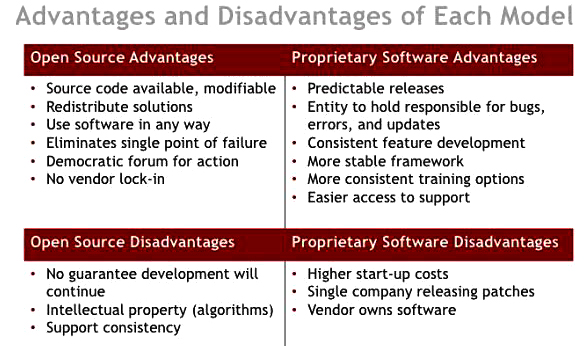Open Source Software Platform | 04 Jan 2022
For Prelims: Computer Emergency Response System (Cert-In), open-source software, GitHub, GovTech 3.0.
For Mains: Government Policy on open-source software, Open source softwares there advantages and disadvantages.
Why in News
Recently, the Github, an open-source software repository service was used to create and share an offensively named app that sexually harassed a women in India.
- The app used pictures of the women stolen from their social media handles and invited “users” to bid for them.
- GitHub has blocked the user, and the Indian Computer Emergency Response System (Cert-In), has been asked to form “a high-level committee.
GitHub:
- GitHub is the world’s largest open-source developer community platform where users upload their projects and code for others to view, edit, and tweak.
- The platform uses the software Git, which was created in 2005 by Linus Trovalds, the developer of the open-source operating system Linux, to track changes in a set of files and for coordination in software.
Key Points
- Meaning of Open-Source: The term open source refers to something people can modify and share because its design is publicly accessible.
- Underlying Principles: Open source projects, products, or initiatives embrace and celebrate principles of
- Open exchange,
- Collaborative participation,
- Rapid prototyping,
- Transparency,
- Meritocracy, and
- Community-oriented development.
- Underlying Principles: Open source projects, products, or initiatives embrace and celebrate principles of
- Open Source Software: Open source software (OSS) is software that is distributed with its source code, making it available for use, modification, and distribution with its original rights.
- Source code is the part of software that most computer users don’t ever see.
- It’s the code computer programmers manipulate to control how a program or application behaves.
- OSS typically includes a licence that allows programmers to modify the software to best fit their needs and control how the software can be distributed.
- The idea of making source code freely available originated in 1983 from an ideological movement informally founded by Richard Stallman, a programmer at MIT.
- Examples of Linux, Mozilla Firefox, VLC media player, SugarCRM, etc.
- Closed Source or Proprietary Software: Closed source software is software that holds the source code safe and encrypted.
- Meaning, the user can't copy, modify, or delete parts of the code without some type of consequence.
Note:
- While the operating system of Apple’s iPhones (iOS) is closed source, meaning it cannot be legally modified or reverse engineered, Google’s Android operating system is open-source, and therefore it is possible by smartphone manufacturers such as Samsung, Xiaomi, OnePlus, etc to modify it for their hardware.
- Government Policy on OSS:
- The Government of India had issued a Policy on Adoption of Open Source Software in 2015.
- Free and Open Source Software for Education (FOSSEE) Project: It is a project promoting the use of open source software in educational institutions.
- It does that through instructional material, such as spoken tutorials, documentation, such as textbook companions, awareness programmes, such as conferences, training workshops, and internships.
- The government has also made the android version of the Aarogya Setu app open source.
- Promoting OSS is a part of GovTech 3.0.
- GovTech 3.0 is focussed on Open Digital Ecosystems (ODEs), the underlying philosophy suggests that the government should focus on creating the “digital commons”.
Way Forward
- The government must take urgent, exemplary action against the perpetrators. Simply taking down the app, without imposing costs on such criminal behaviour, will lead to encouragement of impunity.

